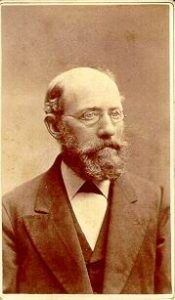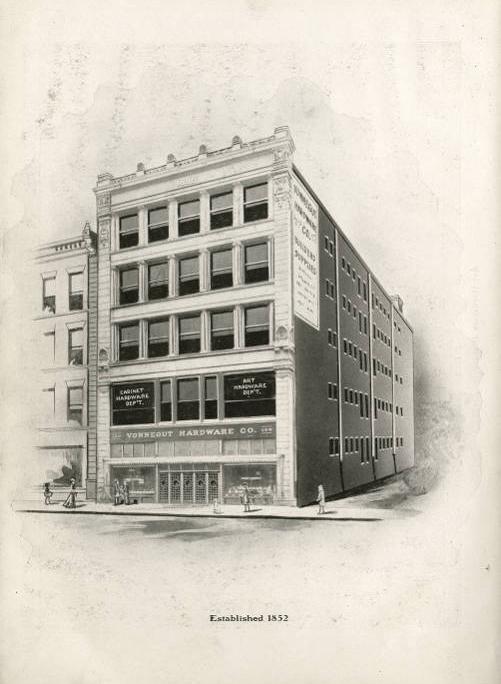
Photo info ...
Credit: Indianapolis photograph studio (c.1885), Public domain, via Wikimedia CommonsView Source
(Nov. 20, 1824-Dec. 13, 1906). German immigrant Clemens Vonnegut Sr. was the patriarch of the Indianapolis Vonneguts. He was a successful merchant, civic leader, and intellectual.
Born in Münster, Westphalia, Germany, Vonnegut came from an urban, middle-class family. His father was a tax collector for the government of Westphalia. A product of the gymnasia of Warendorf and Münster, Vonnegut was well educated, qualified to attend university, and fluent in English and French. Instead of pursuing higher education, he became involved in the manufacture and sale of silk ribbon.
In 1851, he sailed for America to conduct business for his employer, decided to remain in the United States, and shortly thereafter relocated to Indianapolis on January 11, 1852. Vonnegut immediately formed a general merchandise retail partnership with fellow immigrant and schoolmate Charles “Carl” Vollmer. However, by 1857, Vonnegut became the sole proprietor of the business and carried only hardware, farming equipment, and carpenter’s tools at his East Washington Street store. remained a multigenerational, family-owned Indianapolis institution until 1965. Its motto was “You can get it at Vonnegut’s.”

Vonnegut was dedicated to his family and civic responsibilities. He married Katerina Blank, a native of Baden, in Indianapolis. They had four sons—Clemens Jr., Bernard, Franklin, and George. All but Bernard followed in the hardware business. He formed the architectural firm of .
The civic activities of Clemens Vonnegut Sr. included 27 years on the Indianapolis Board of School Commissioners and cofounding and leadership of the , the Indianapolis Turngemeinde (see ), the Freidenker Verein/Free-Thinker Society (see ), and the Gewerbeschule. He was also an active member of the .
He was an education reformer responsible for the general improvement of instruction and the introduction of physical education and manual training into the curriculum. Vonnegut was the author in German and English of (Indianapolis, 1900).
His obituary in the German-language Indiana Tribüne described him as a fighter for German views and aspirations as well as for freedom, justice, and morality. He was also the great-grandfather of renowned author

Help improve this entry
Contribute information, offer corrections, suggest images.
You can also recommend new entries related to this topic.